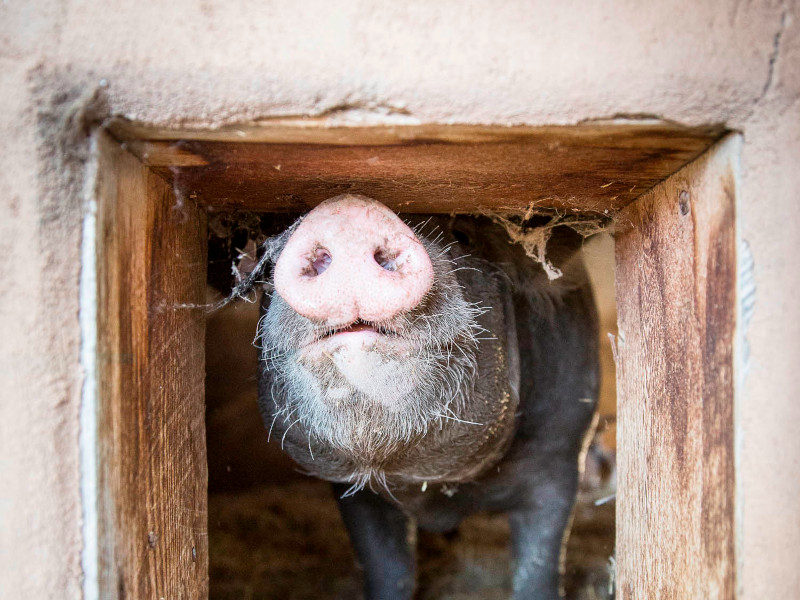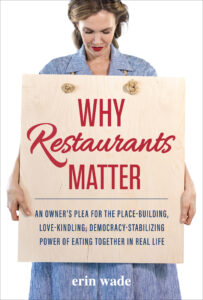Dear Matt,
Your recent ad is very good. It is also very wrong.
You show us real footage of real people working in corner joint restaurants. You remind us that restaurants are our family. These are the places and workers that enrich every city and town in America, and they need our help now.
But telling us that we can save them by ordering from Grubhub?
Matt, you helped make this crisis.
Mandatory shutdowns have been crushing for restaurants because we had thin profit margins to begin with, often 10% or less. You know this. But you charge restaurants that “partner” with Grubhub more than they make per meal. You are part of the reason why restaurants are so vulnerable to the shock from this pandemic.
In the past you’ve justified Grubhub’s 30% fees by saying the new business you bring will make it to the bottom line at a lower marginal cost. Many of our costs are sunk, you say.
But this is not true. We already make less on to-go orders than in-house service. And, in many cases, you are not adding new customers to our base, but converting old ones into Grubhub customers.
You have encouraged customers to consider us an inconvenience and to order delivery via screens more of the time. This has been bad for restaurants. As takeout sales increased, we have had to cut jobs we could no longer afford.
And the servers who do the work of preparing to-go food so it doesn’t suck when it gets home lose the tips that are their livelihood. Instead, we hand our food to a total stranger—a Grubhub driver.
Before Covid, New York City Council had proposed legislation to regulate third-party delivery platforms by capping their predatory fees at 10%. Representatives from your company said this would hurt the small businesses who rely on your service.
But small businesses don’t rely on you. They are trapped in a destructive cycle you helped create. On the one hand they need you to access customers increasingly cocooned in algorithmic preference bubbles and attached to screens. On the other hand, the cost is so high they can never get ahead—like the addictive cycle of high-interest payday loans.
Sometimes you exacerbate this dependence by setting up shadow websites that are similar to restaurants’ organic sites but take customers to Grubhub instead. This confuses customers, dilutes restaurant brands and search rank, and costs the restaurant their profit margin.
If we don’t sign up for this “partnership,” you pirate our menus off our websites and take orders from customers anyway. The pre-charged payment cards sometimes don’t work and everything we made languishes, unpaid for. We field angry calls from customers who think it’s our fault they didn’t get the food they ordered.
When my manager called customer service to tell you how unfair it is that we are paying for your mistakes, he was told “Well, none of this would happen if you would just sign up with us.” Which sounds a lot like what the mob boss says, after they burn down your house.
Restaurant owners don’t think of you as family, Matt. We think of you as a bully. You have huge marketing budgets and unprecedented scope and scale of knowledge about our customers that you have used to disrupt an industry that has been supporting communities since the Middle Ages. You are mining information from us to create your own “ghost kitchens” which will put many mom and pop shops out of business.
If we are saved, it will be in spite of you, not because of you. It will be because when it’s safe people come back out to see us, so we can support our crusty old dishwashers and our whip-smart bartenders and our teenage bussers and our shit-talking line cooks. That’s our family.
Erin Wade
Restaurant Owner
* * * * * * * * * * * * * * * * * * * * * * * *
In fairness to Grubhub, they sent this response to KRQE who did this piece on the letter.
Our mission since we were founded in 2004 has been to connect hungry diners with great, local restaurants. We’ve built a marketplace that enables restaurant owners to reach a network of more than 22 million diners across the country, and we handle delivery logistics so that restaurateurs can focus on making the food diners love. We know these are tough times for independent restaurants, and we deeply value the feedback we hear from owners.
During these challenging times, we’re investing in programs that directly drive business to our restaurant partners and organizing community support through orders and donations. That’s why we created the Grubhub Community Relief Fund to provide financial relief for our restaurants and drivers, in addition to our efforts to ensure diners are aware they can still enjoy food from restaurants through pickup and delivery. With this fund, all contributions through our Donate the Change program – amounting to more than $1 million per month on average – go to charitable organizations that support restaurants and drivers.

